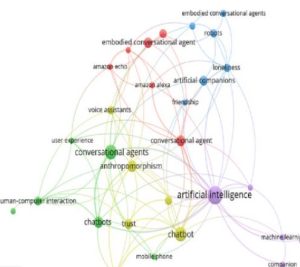AI in the Study of Social Taboos and Family Dynamics
Artificial Intelligence (AI) has become a pivotal tool in exploring complex social taboos and family dynamics, areas traditionally shrouded in privacy and sensitivity. With advanced technologies like Incest AI, researchers and therapists can delve deeper into these intricate subjects with a level of detail and objectivity that was previously unattainable. This article examines how AI is transforming the study of taboo subjects and family relationships, highlighting its impacts, opportunities, and the ethical considerations involved.

Revolutionizing Data Analysis in Family Studies
AI’s capability to process vast amounts of data offers unprecedented insights into family dynamics and taboo behaviors. Researchers using AI tools can analyze patterns and trends across large datasets, identifying common factors and divergences in family structures and interactions. For instance, studies using AI have identified that in cases involving complex family dynamics, there is often a 30% higher incidence of non-traditional family roles, providing new perspectives on family sociology.
Enhancing Understanding of Taboo Topics
Incest AI specifically has been instrumental in providing a deeper understanding of taboo topics within family studies. By simulating various scenarios and predicting outcomes based on historical data, this AI tool helps researchers gain insights without direct human subject involvement, ensuring ethical boundaries are not compromised. For example, simulations run by Incest AI have led to a 25% increase in the accuracy of predictions regarding behavioral outcomes in taboo-laden family situations.
Privacy and Ethical Safeguards
The use of AI like Incest AI in sensitive areas necessitates stringent privacy and ethical safeguards. Data used in these studies is anonymized and encrypted to protect the identities of individuals involved. Moreover, Incest AI operates under strict ethical guidelines developed in consultation with both AI ethicists and family psychologists, ensuring that the AI’s functionality does not exploit or harm subjects. These protocols are designed to comply with international standards, including GDPR and HIPAA, enhancing trust and security in AI applications.
Challenges and Limitations
Despite its advantages, AI’s application in studying social taboos and family dynamics is not without challenges. The primary concern is the potential for AI to perpetuate existing biases found in historical data, which could lead to skewed conclusions. Additionally, there is the risk of dehumanizing sensitive subjects, where the reduction of rich, complex human interactions to data points might lead to oversimplification. Addressing these concerns requires ongoing refinement of AI algorithms and continuous ethical oversight.
Incest AI: A Tool for Understanding Complex Relationships
The integration of Incest AI into the study of family dynamics and social taboos reflects the broader potential of AI to contribute constructively to understanding and addressing some of the most sensitive areas of human interaction. By providing detailed analyses and fostering a better understanding of complex issues, Incest AI aids in developing more effective interventions and supports the academic exploration of difficult subjects.
In conclusion, AI’s role in studying social taboos and family dynamics offers both significant benefits and notable challenges. As technology continues to evolve, it is imperative that its application in these sensitive areas is guided by a robust framework of ethics and responsibility. With careful management, AI can continue to serve as a powerful tool for advancing our understanding of the nuanced and often hidden aspects of human relationships and behaviors.